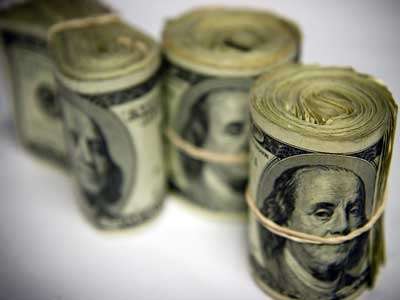Which candidate will be best for the stock market?

With Election Day less than a month away, television is filled with talking heads spreading the conventional wisdom of what a Republican or Democratic president might mean for the economy.
However, a group of researchers says, when it comes to the relationship between presidential politics and the behavior of the financial markets, conventional wisdom may not be so wise.
The researchers reviewed more than 40 years of data (1965-2008) in studying the relationship between security returns and four variables: the political affiliation of the president; the presence or absence of political gridlock; the presidential term cycle effect; and Federal Reserve monetary policy. While many academic papers have analyzed those factors separately, the authors of this study considered them simultaneously.
When all four of those factors were taken into account, the researchers concluded, many of the commonly held beliefs about how politics impact the market simply did not hold true.
Markets unmoved by a president's party affiliation
One of the most commonly repeated truisms called into question by the study is that the political affiliation of the president has an impact on the market. In reality, whether the president is a Republican or a Democrat is most often insignificant to the performance of the markets.
"While the party of the president garners much of the attention of the press, it appears that other factors have a much more prominent relationship with security returns," said Gerald Jensen, the Jones, Diedrich, Mennie professor of finance at the Northern Illinois University College of Business. He has spent years studying the topics covered in the study.
The misconception about the president's party affiliation appears to have grown out of research that looked at factors in isolation. For instance, numerous studies have shown that stock returns (especially for small stocks) are substantially higher during Democratic presidencies relative to Republican administrations. Similarly, bond returns during Republican administrations are twice as high relative to returns generated during Democratic administrations.
However, Jensen and his colleagues found that when you control for the other factors considered in this study, the difference in the performance of the markets across presidents from different parties is statistically insignificant.
Gridlock is not good
Many pundits, and researchers, maintain that political gridlock – which occurs when different parties control the White House and the legislature – is good for the
market. Under such conditions, they reason, there is less chance of significant fiscal policy actions, which tend to disrupt financial markets.
In reality, the authors report that political harmony is better for equities, especially smaller stock indexes where annualized returns were reportedly 22.38 percent higher during harmony as opposed to gridlock. Even when researchers adjusted for other factors, the benefits of political harmony remained clear, Jensen said.
Despite what the numbers say, the perception that gridlock is good has established itself.
"It has been repeated so often I think that it has sort of been accepted as fact," said Jensen, who speculates that people hang their argument on specific examples, like the Clinton presidency, when markets excelled despite political gridlock, and fail to consider other evidence.
While it is clear that, during the period studied, political harmony coincided with strong equity performance, Jensen and his fellow researchers stop short of saying that there is a dependency between the two. "We have identified a relationship, but we aren't saying that one causes the other," he cautioned.
Time will tell
While elections naturally bring up discussions of how politics influence the markets, Jensen and his colleagues found that political outcomes have little immediate impact. In fact, history has demonstrated that the most favorable return patterns are not manifested in the market for three years.
One theory is that the Federal Reserve loosens monetary policy in ways that reflect favorably upon incumbents in Congress and the White House to help encourage reelection. However, Jensen points out, even when the researchers adjusted for Fed policy changes, the economy seemed to consistently rally in the third year of a presidency.
It's all about the Fed
While much attention is focused on issues such as the president's political affiliation and gridlock, investors might be better served by paying less attention to those factors and more to how the election might affect Federal Reserve policy, Jensen said.
"A tightening of Fed monetary policy generally precedes poor equity market performance and increased inflationary pressures. Ultimately, that factor seems to carry the greatest weight, and that is what investors should pay the most attention to," he said.
"In the end, policies are more important than politics," he continued. "While the Chairman of the Federal Reserve is appointed by the president, I don't think people pay much attention to what party he comes from. They pay attention to what he is doing. Perhaps they should look at politicians the same way. It's not their party affiliations that are important, but the policies that they put forth."
Provided by Northern Illinois University















